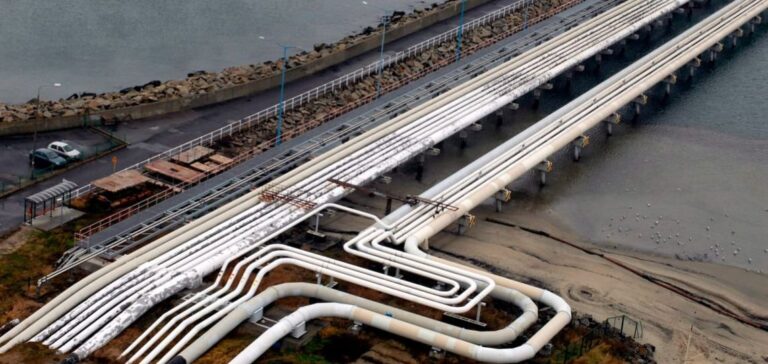Hungary announces the freezing of European Union reimbursements for member states that have supplied ammunition to Ukraine.
Budapest’s decision is conditional on Lukoil allowing Russian oil to transit through Ukrainian territory.
This situation highlights the growing energy and political tensions between EU members, exacerbated by the conflict in Ukraine.
Since last month, Slovakia and Hungary have stopped receiving oil from Lukoil via the Druzhba pipeline, following a Ukrainian ban on the transit of the company’s resources.
In response, the Hungarian Ministry of Energy has set up a working group to review the measures taken to date and identify potential steps to secure the country’s energy supply.
European funds blocked
Peter Szijjarto, Hungary’s Foreign Minister, said that until this situation was resolved by Ukraine, reimbursements of 6.5 billion euros from the European Peace Fund (EPF) for arms transfers would remain on hold.
The EPF, established in 2021, allows member states to recover the costs of sending munitions to other countries, in particular to support Ukraine since the Russian invasion of 2022.
The Ukrainian Foreign Ministry has yet to respond to this statement, but has indicated that the blockage does not affect the overall flow of oil via the Druzhba pipeline, which also serves other suppliers.
The pipeline, nicknamed “Friendship”, continues to operate despite more than two years of conflict, although the EU has significantly reduced its dependence on Russian energy sources.
Hungary’s energy dependence
Hungary, which relies heavily on Russian oil for its refineries, was particularly hard hit by the ban.
Budapest and Bratislava have asked the European Commission to launch a consultation procedure with Ukraine to resolve the dispute.
This could lead to legal action if the EU executive does not intervene within three days.
For over a year, Hungary has been blocking payment of the next tranche of EPF funds, citing various reasons.
This latest impasse highlights the complexity of intra-European relations in the face of the war in Ukraine, and the need to maintain solidarity within the Union despite divergent energy interests.
The current situation reflects the continuing challenges for the EU in managing energy security while supporting Ukraine.
Resolving this conflict will be crucial to maintaining European unity in the face of external pressures and internal energy needs.
The evolution of this issue will be decisive for the EU’s energy stability and relations between its members.






















